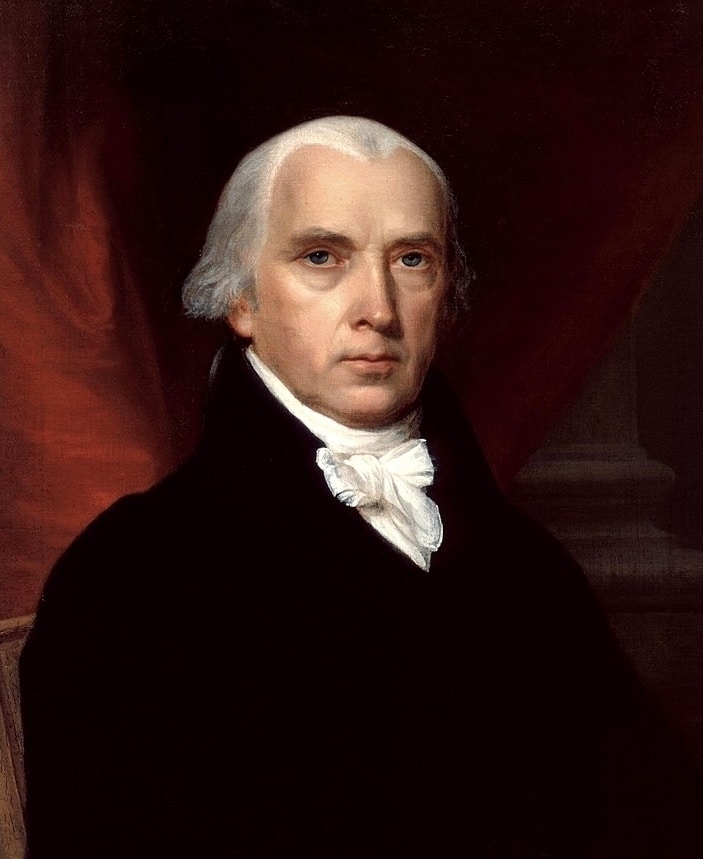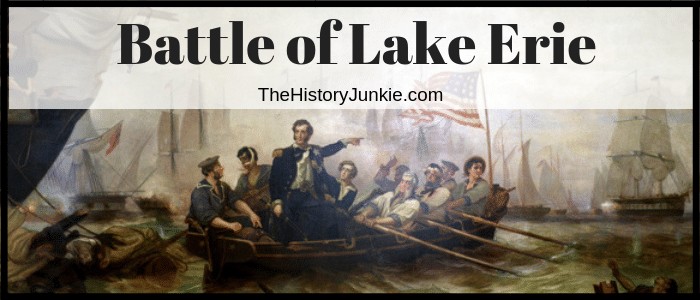James Madison was the 4th President of the United States and is known as the Father of the Constitution and the Father of the Bill of Rights. He and his future political rival, Alexander Hamilton, wrote the Federalist Papers. Madison is known as a protegé of Thomas Jefferson, but when one studies his presidency, you will see a few differences.

James Madison was the third President of Virginia and the second in the Virginia Democratic-Republican dynasty. At 5 feet and 4 inches tall, James Madison did not have the intimidating physical presence of George Washington, but his mind was sharp, and his knowledge of political philosophy was unmatched.
He was not the ideologue Jefferson was and was able to make adjustments when the time called for it.
Election of 1808
It was widely known that Thomas Jefferson was not going to run for re-election and would retire from political life after the second term of his presidency. He was tired and believed that he should follow the same precedent that was set by George Washington.
James Madison was an obvious candidate and was quickly nominated by the Democratic-Republicans to follow President Jefferson. The Federalist Party was all but powerless and had little political influence. Madison easily coasted to a victory over Federalist Charles Cotesworth Pickney.
James Madison Presidency (1809 - 1817)
Madison inherited a wealthy American economy from Jefferson. The Federal government had a surplus of $9,500,000 and was consistently paying down the national debt while also lowering taxes. After his inauguration, Madison put together his cabinet. Many of the men were holdovers from Thomas Jefferson's Presidency:
- Senator Albert Gallatin - Secretary of Treasury and one of Madison's chief advisors.
- Robert Smith - Secretary of State, had served as Jefferson's Secretary of Navy
- Paul Hamilton - Secretary of Navy
Madison's cabinet was made up of mediocre talent and was mainly put together for the national interest. This was partly due to the struggles that John Adams had during his presidency.
War of 1812
Napoleon had won many victories in Europe and had entered into a time of relative peace with Europe. He had set up a continental system which essentially crippled the British economy and was working well until Portugal opted out and continued trade with Great Britain.
This started the Peninsula Wars in Europe, which caused Spain to lose much of its old global empire in the Americas and left Great Britain as the superpower in the Caribbean.
Spain's vast empire that was created by the Spanish Conquistadors had deteriorated slowly, but the Peninsula War hastened the progress.
War Hawks in the American Congress saw this as an opportunity to expand America's borders and exact revenge on the British for terrorizing their ships. By 1810, Napoleon had begun to invade Russia and thrown the entire continent into war once again.
With Europe at war, Americans saw their opportunity.
Unfortunately, they were ill-prepared for it. Jefferson and Madison had distrusted standing armies, which resulted in the dismantling of a strong Navy and Army that Washington and Adams had begun to build. Madison's allowance of the First Bank of the United States to expire made the war almost impossible to fund.
The military was made up of mostly ill-trained militia that did not want to fight outside of their home state. Due to the embargoes that Jefferson had placed on Britain, New England's economy suffered greatly and, led to a real threat of secession from the Union. They would not support any of the soldiers.
Madison's cabinet was split on the issue as well. Many sided with Washington's foreign policy that he laid out clearly in his Farewell Address, which said to avoid entangling alliances.
Nevertheless, Congress declared war on Britain. American forces had been dismantled, and those in leadership were incompetent. The war did not begin with much success as Detroit surrendered without a shot being fired, and the British began arming the Shawnee and other Indian tribes. However, young American leaders did begin to emerge.
Oliver Hazard Perry successfully drove the British out of Lake Erie at the Battle of Lake Erie. During the retreat, General William Henry Harrison caught up with them and defeated Tecumseh and the British at the Battle of the Thames.

Harrison's victory killed Tecumseh, destroyed the British army and its presence in the Great Lakes region, annihilated the Indians, and effectively ended their influence in the region.
General Andrew Jackson was also having success destroying the main Indian powers still left in the South.
Although America was seeing some success, the British did manage to conquer the capital, Washington D.C., and raze it. Before the British destroyed the White House, Dolley Madison rescued important writings and a painting of George Washington himself.
This attack on American soil would be the last successful attack by a foreign nation until September 11, 2001.
The Battle of Fort McHenry took place when the British launched one of the most ferocious naval attacks the world had ever seen. When the morning came, and Francis Scott Key saw that the fort still stood, he penned the Star-Spangled Banner.
The Treaty of Ghent was signed in 1815, which ended the War of 1812. The Battle of New Orléans took place after the treaty in which Andrew Jackson annihilated the British forces at New Orléans. The victory gave him much praise.
Napoleon would fall at the Battle of Waterloo and be exiled to Elba. The War of 1812 had officially ended as a stalemate in which the young nation barely escaped with its life. After the war, James Madison's Presidency entered a time of economic boom, which would be labeled "The Era of Good Feeling."
Post-War Presidency
All of the problems that arose at the prelude to the War of 1812 began to dissipate.
New England was believed to be unfairly oppressed by the embargos that Jefferson and Madison had placed on Britain. These emotions rose to a climax at the Hartford Convention, where the threat of secession came to the forefront. After the war, the Federalists who had led that movement had all but vanished from the political scene.
Americans had also fought and won the Second Barbary War and secured what they believed was complete independence from Great Britain. The Napoleonic Wars had devastated Europe and left the land razed and in need of food. As a result, the American agricultural economy boomed as America began to trade with the European powers.
This brought great wealth into the land and catapulted America into an economic power. In just a short time from gaining their independence in the American Revolutionary War, America had risen to national recognition. James Madison easily won a second term.
After the war, Madison approved the Second National Bank of the United States. He had learned that it was necessary and that its end had hurt the American economy during the War of 1812.
He also approved a standing army, a taxation system based on tariffs, and some internal improvements that had been pushed by Henry Clay. The war had changed Madison from an idealist to a realist in which he saw the world for what it was and the dangers of not having an adequate military to protect against man's vain ambitions.
James Madison retired from the Presidency, and James Monroe was elected in his place.
